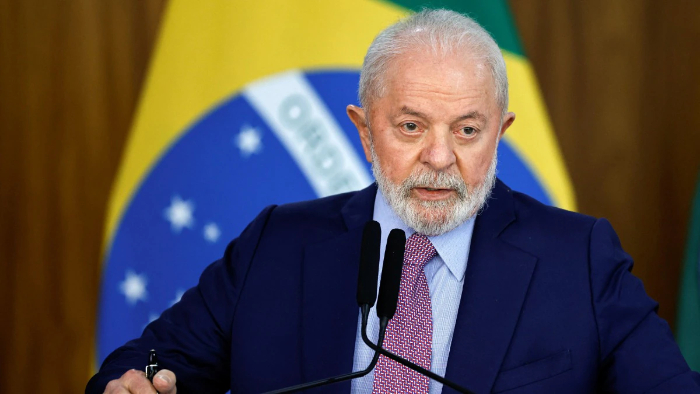
As global leaders ramp up efforts to tackle climate change, Brazil’s President Luiz Inácio Lula da Silva recently made headlines by urging former U.S. President Donald Trump, a prominent figure in American politics, to prioritize climate initiatives. The call to action comes as Trump, a leading candidate for the 2024 Republican nomination, remains sceptical about climate change, a stance that has drawn criticism from environmental advocates globally.
President Lula’s plea is not just a diplomatic gesture but is deeply rooted in Brazil’s broader strategy to lead global climate efforts. Since returning to power in 2023, Lula has been vocal about Brazil’s commitment to environmental preservation, especially given the Amazon rainforest’s critical role in absorbing carbon dioxide and regulating the Earth’s climate. Lula has emphasized the urgency of this issue, particularly after Brazil’s efforts to combat deforestation during his earlier presidential terms were reversed under his predecessor, Jair Bolsonaro.
Lula’s statement comes amid rising concerns that Trump’s potential return to the White House could weaken international climate agreements. During his previous presidency, Trump famously withdrew the U.S. from the Paris Agreement in 2017, although it was later rejoined under President Biden. Lula’s message highlights the need for continuity and commitment from the U.S., one of the world’s largest carbon emitters, in advancing global climate goals.
Brazil’s leadership in climate action
Under Lula’s administration, Brazil has positioned itself as a leader in climate diplomacy. At the 2024 UN Summit of the Future, Lula emphasized that current global climate financing and emissions reduction levels are insufficient to prevent catastrophic warming. He has called for richer nations to shoulder greater responsibility, aligning with the principles of climate justice, which advocate for developed countries to assist poorer nations in transitioning to green economies.
Lula’s government has made significant strides in curbing deforestation in the Amazon, with recent data showing a 30% drop in deforestation rates compared to the previous year. This progress is part of Lula’s strategy to rehabilitate Brazil’s image on the global stage after years of environmental degradation under Bolsonaro’s administration.
The role of the U.S. in global climate policies
Lula’s urging of Trump to prioritize climate action reflects a broader concern about the direction of U.S. environmental policy. The U.S. plays a crucial role in setting the tone for international cooperation on climate change. If Trump were to downplay climate action again, it could disrupt ongoing initiatives and reduce the momentum needed to meet the targets set by the Paris Agreement.
Under Lula’s leadership, Brazil is set to host the upcoming COP30 climate conference in 2025 in Belém, a city at the heart of the Amazon. The conference is expected to serve as a crucial platform for negotiating further climate commitments and addressing financial support for vulnerable nations. Lula has emphasized that without stronger commitments from major powers like the U.S., the global community risks missing critical climate targets.
As the world approaches crucial climate deadlines, Lula’s appeal to Trump underscores the urgency of a unified international response. Lula’s call is not only a diplomatic effort but also a reminder that political changes in major economies like the U.S. can significantly impact the world’s climate agenda. Whether Trump’s response will align with global climate priorities remains to be seen, but Brazil’s efforts to hold leaders accountable signal a renewed focus on collective action against climate change.
By fostering dialogue and pushing for more substantial climate commitments, President Lula aims to ensure that global climate policies are not derailed by political shifts, especially in countries like the U.S. that have an outsized influence on global emissions and policy frameworks


